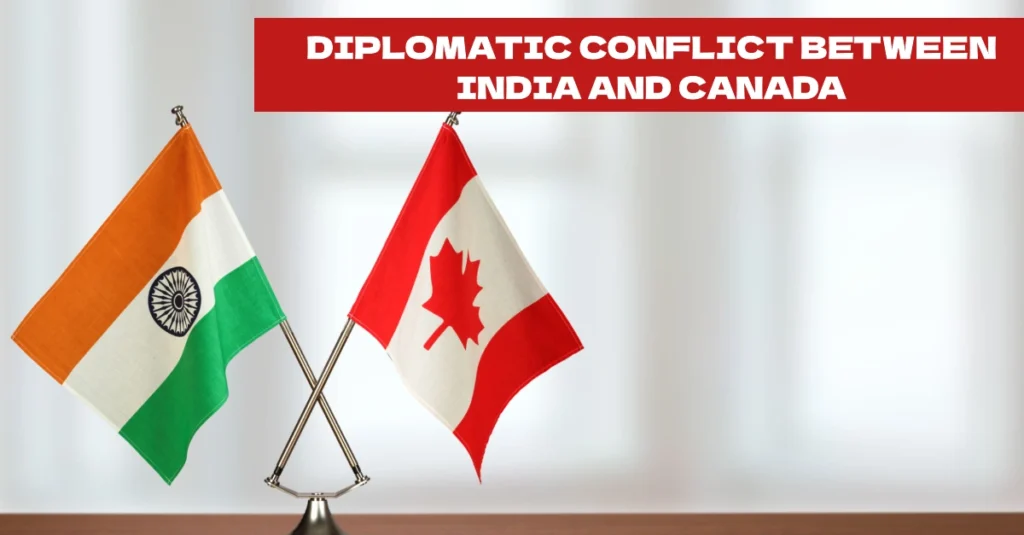The diplomatic tensions between India and Canada have escalated into a significant crisis, affecting not just political relations but also immigration policies, visa processing, and the lives of countless immigrants. As both governments recalibrate their diplomatic strategies, the future of immigration—a cornerstone of their bilateral cooperation—hangs in the balance.
Table of Contents
- Tensions Triggered by Trudeau’s Allegations in 2023
- India Withdraws Diplomats: Accusations of Extremist Ties and Safety Concerns
- Canada’s Response: Credible Evidence Against Indian Agents
- Political and Historical Context of the Diplomatic Rift
- Geopolitical Implications and Next Steps
- A Diplomatic Crisis with No Clear Resolution in Sight
- A Crossroads for Immigration and Diplomacy
Tensions Triggered by Trudeau’s Allegations in 2023
The current diplomatic strife began in September 2023, when Canadian Prime Minister Justin Trudeau alleged that Indian agents were involved in the murder of a Canadian citizen on Canadian soil. The Indian government promptly denied these claims, labeling them as “preposterous imputations” driven by political motives. Despite multiple diplomatic requests, India asserts that Canada has failed to provide verifiable evidence supporting these serious allegations, describing the Canadian actions as attempts to tarnish India’s global reputation for domestic political gain.
India Withdraws Diplomats: Accusations of Extremist Ties and Safety Concerns
In retaliation to the allegations, India summoned the Canadian Charge d’Affaires and expressed dissatisfaction over Canada’s alleged targeting of Indian diplomats. India’s Ministry of External Affairs stated it has “no faith” in Trudeau’s government to protect Indian diplomats, citing an environment of “extremism and violence” in Canada. High Commissioner Sanjay Kumar Verma, a senior diplomat with over 36 years of service, was among those recalled to India.
Indian authorities have raised concerns that Canada has allowed violent extremists and separatists to operate without restriction, posing significant threats to Indian diplomats and community leaders, including death threats against them. Furthermore, India criticized Canada’s interpretation of freedom of speech as a justification for enabling harassment and pointed out that several individuals linked to extremist activities had been expedited in their citizenship applications. Additionally, India noted that several of its extradition requests for terrorists had been rejected by Canadian authorities.

Canada’s Response: Credible Evidence Against Indian Agents
The Canadian government has strongly refuted India’s narrative, asserting that their allegations stem from an investigation backed by credible evidence. Canada claims to have provided substantial proof linking Indian agents to the murder of the Canadian citizen. Officials in Canada have urged India to cooperate with the investigation, reinforcing that both nations need to resolve the situation for mutual benefit.
Political and Historical Context of the Diplomatic Rift
The tensions are deeply rooted in historical grievances. India has long criticized Trudeau’s government for its association with separatist elements advocating for Khalistan, an independent Sikh homeland. Allegations have surfaced that Trudeau’s administration has allowed these extremist factions to thrive in a bid for political support from specific diaspora communities.
Past incidents have strained relations, such as Trudeau’s controversial visit to India in 2018, where a convicted extremist was invited to official events. India perceived this as a sign of Canada’s leniency towards anti-India sentiments. The situation worsened in 2020 when Trudeau publicly supported Indian farmers protesting agricultural reforms, which India viewed as interference in its domestic affairs.
Canada New 2-Year Work Permit Without LMIA Before March 2026!
Top LMIA-Approved Jobs in Canada October 2024: Leading Companies & Application Process
Quebec New Immigration Cap for 2024-2025: Overview of Changes and Implications
Visa-Sponsored Farm Laborer Jobs in Canada 2024
Canada Proposes Major Changes To Work Permit Rules Nov 01, 2024
Geopolitical Implications and Next Steps
The ongoing diplomatic crisis poses risks to bilateral trade and cooperation between India and Canada. With both countries historically strong partners in education, technology, and trade, the current tensions could disrupt visa processes, trade negotiations, and security cooperation.
India’s withdrawal of diplomats is expected to slow diplomatic engagement, while Canada has urged India to act responsibly and participate in the investigation. Domestic political pressures are mounting for Trudeau to address foreign interference in Canadian politics, while India has signaled that it may consider further retaliatory measures.
A Diplomatic Crisis with No Clear Resolution in Sight
The crisis has reached a new level of distrust, with both countries entrenched in their positions. India’s withdrawal of diplomats reflects significant concerns over their safety, while Canada’s insistence on pursuing the investigation highlights the seriousness of the allegations. Observers believe that diplomatic mediation will be essential to defuse tensions, but the intersection of domestic politics complicates any potential resolution.
As the international community watches closely, the critical question remains: can India and Canada find common ground, or will the crisis deepen, impacting millions connected to both nations?
A Crossroads for Immigration and Diplomacy
The fallout from the India-Canada diplomatic crisis has thrown immigration relations into uncertainty. The ongoing conflict raises concerns over visa processes, immigration programs, and student permits, creating anxiety among current residents and applicants alike.
Both governments must prioritize resolving the conflict to prevent further disruptions to immigration and trade. Should the standoff continue, Canada risks damaging its reputation as an immigrant-friendly destination, prompting Indian nationals to seek opportunities elsewhere for education and work.
In conclusion, the escalating diplomatic conflict between India and Canada has profound implications that extend far beyond politics, affecting the lives of countless immigrants and shaping the future of bilateral relations. Immediate action and dialogue are essential to restore cooperation and ensure that the longstanding ties between the two nations are not irreparably harmed.
